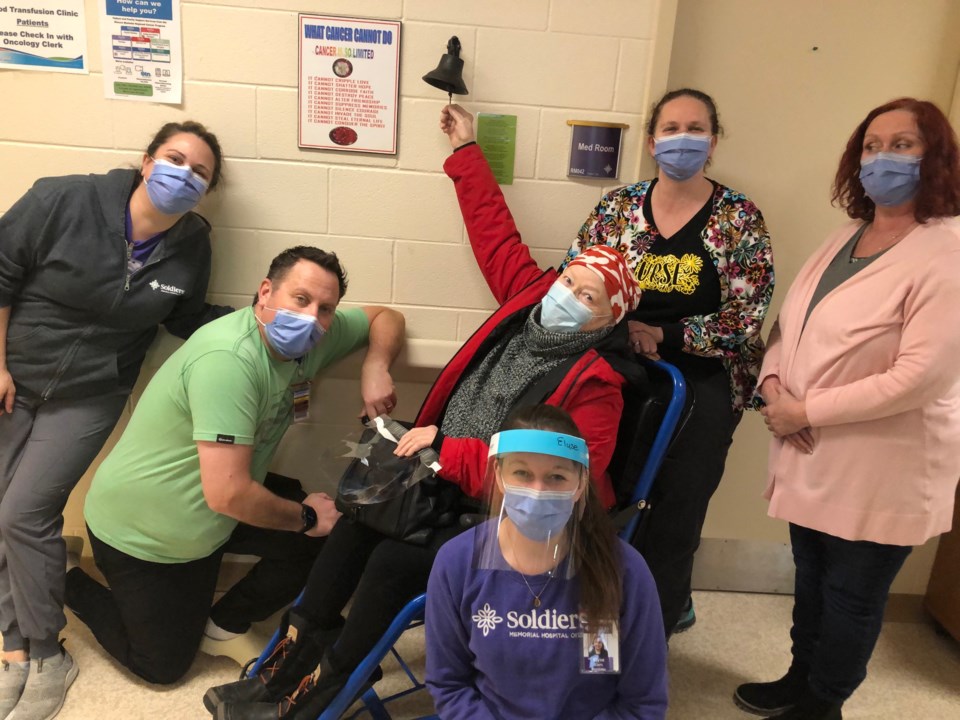The following is a personal account of living with cancer, written by Gail McIlroy of Hawkestone. Click here to read the about the first part of Gail’s journey.
********************
The second portion of my treatment has been quite different from the months of chemotherapy at Soldiers' Memorial Hospital in Orillia.
With chemo completed, it was time to ring the bell and say goodbye to the amazing cancer team and nurses that truly felt like family. There are many benefits when dealing with a smaller hospital The best one is you see the same faces daily, so while they are professional there is a strong sense of the nurses really caring, which is so important when dealing cancer patients.
After a three week reprieve, I was then off to Royal Victoria Regional Health Centre in Barrie. Here, I met with and was assessed by my new radiologist who arranged more X-rays and imaging procedures followed by the creation of a treatment plan she felt would work best for my type of cancer.
After an initial assessment, the number of treatments was determined. Each cancer patient is different and for those of you reading this, please realize what was done here may not be the kind of treatment you will receive.
Following on the same day, I was sent to another department to be measured and to receive my tattoos. Tattoos are permanent body markers that are placed accurately from imaging so that when you receive treatment it is also within the tattooed area.
The Royal Victoria Hospital moves at a quick and efficient pace. Their treatment rooms for patients can manage up to and sometimes beyond, a hundred patients daily. There are four treatment rooms. The hospital was renovated and updated in 1997.
The facility is now known has been called the Simcoe Regional Cancer Centre as of 2012. This centre is much appreciated as prior to this, patients needed to travel to Toronto.
I have been receiving treatments following surgery, including chemo and radiation, since September. Granted, the road has been long, however again I emphasize to any of you about to start this journey to get your supports in place. Friends and family make all the difference with your mind.
Support groups are also beneficial. There is Gilda’s Club and The Sunflower Warriors, just to mention a couple. COVID restrictions have meant groups aren’t available in-person at this time. The help and support is still available virtually or through social media.
The volunteer drivers, originally known as drivers for the Canadian Cancer Society are now called Wheels of Hope (1-888-939-3333) They are polite, reliable, and helpful. The volunteers are unsurpassable; the worry of how I would get to treatment was taken away. It’s recommended that while receiving chemotherapy or radiation the patient should not drive back and forth to the hospital.
So, in closing, I want to say again be positive, reach out, and be thankful to receive treatment. I can’t help but think of remote areas or the Ukrainian people at this time. We here in Canada have nothing to complain about.



